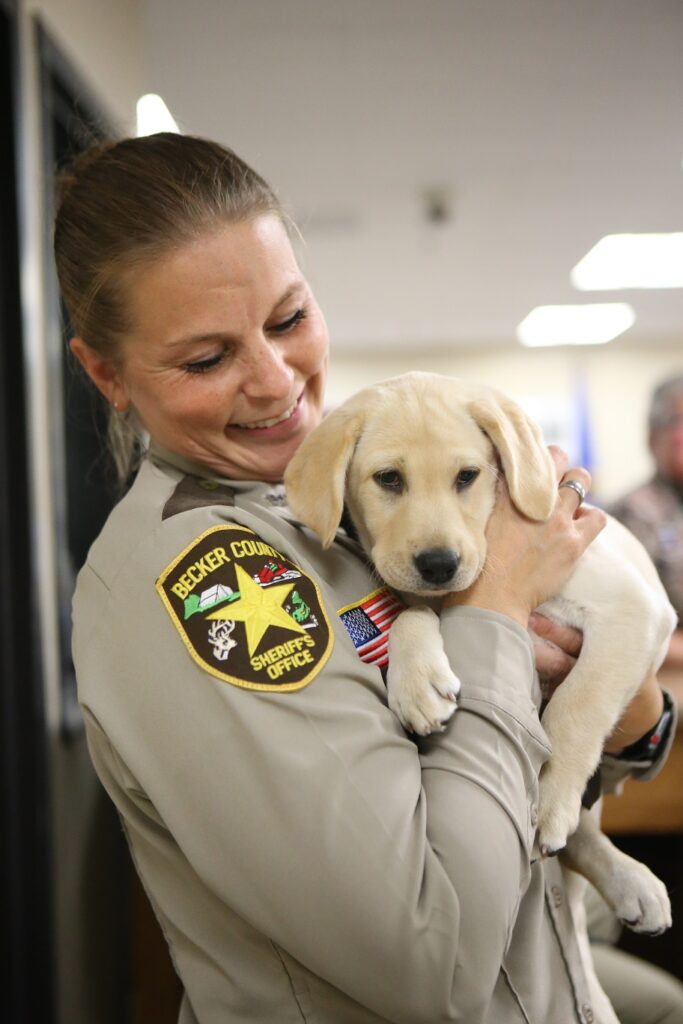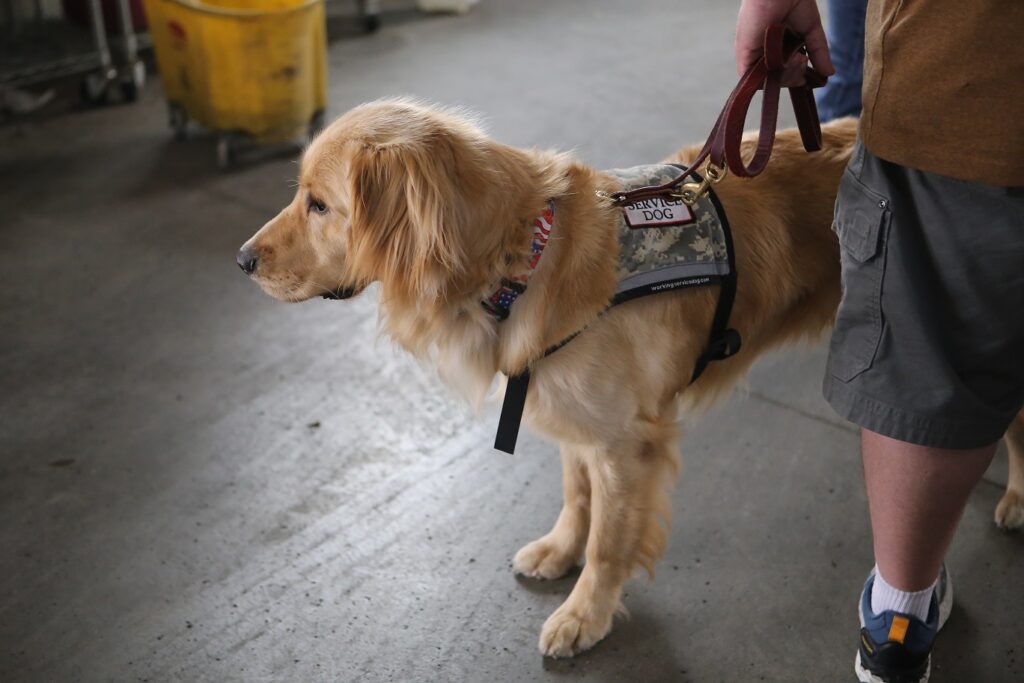ABOUT OUR DOGS



WHAT OUR DOGS DO
Patriot Assistance Dogs (PAD) trains psychiatric service dogs to mitigate symptoms related to Post Traumatic Stress Disorder, Traumatic Brain Injury, Anxiety, and Depression. These trained tasks can include interrupting anxiety/panic attacks, flashbacks, nightmares, road rage, helping the veteran to find outside, and provide modified deep pressure stimulation to aid the veteran. They can aid in the veteran’s ability to go out in public, interact in a positive manner with their community, and improve overall quality of life.
WHAT OUR DOGS CANNOT DO
As wonderful as these dogs are, service dogs can not cure the disabilities of their handler. They are an additional tool in the veteran’s mental healthcare toolbox to aid in the management of the medical condition. PAD does not train outside of the psychiatric service dog niche. PAD does not train service dogs for mobility assistance, blood sugar, hearing, seizure alert, or guide dogs for the blind. We also do not train our dogs for personal protection or guarding tasks.
WHERE OUR DOGS COME FROM
Roughly 75% of the dogs we provide are that need a second chance at life. They come from shelters, rescues, reservation roundups, or households that are no longer able to care for their dog. We are proud to work with the organizations and individuals advocating for these dogs. The remainder come from private donations, breeder donations, and dogs which have been bred within our organization. If you think you have a dog you would like to donate to our program, please email us at info@padmn.org and provide us with information about the dog.
WHERE OUR DOGS GO
The dogs that we assign undergo extensive training and medical assessments in an effort to do our best to ensure a long working career. When they are ready, the dogs are assigned and go out with their veteran on a two-year foster contract. After the two-year probationary period, the veteran may submit an application for ownership of the service dog.
Dogs that, for one reason or another, are career changed are adopted out into appropriate environments. For example, a dog that turns out to have more drive and energy required for a service dog will be evaluated for an appropriate working job such as search and rescue or narcotics work. A dog that fails medical requirements or simply needs a retirement home will likely end up making a wonderful pet or companion in a loving home. If you are looking to adopt a career changed dog (NOT a service dog), please email us at info@padmn.org.
HOW TO DONATE A DOG TO PAD
Raising and training a puppy requires more time and money than training with an adult dog. Donations of puppies can only be considered on a case-by-case basis provided that we have an experienced foster home available to raise them appropriately. Our ideal candidate dogs are roughly 1-2 years old, in good health, and with a low to medium energy level. They prefer being with people and are naturally friendly to everyone. Potential Service dogs may not show any type of aggression or controlling behavior. They must be eager to please and happy to learn.
PAD CANDIDATE GUIDELINES
If the following apply to your dog and you would like to have them evaluated to be accepted as a donation to our program, please call 218-844-6003 and leave a request to speak to a trainer. In the meantime, here are a few things that we require and look for in our service dog candidates.
I have legal ownership of the dog.
I have veterinary record that my dog is up to date on rabies and distemper vaccination. We will need a copy of this prior to meeting the dog.
My dog is roughly 1-2 years old (exceptions may be made on an individual basis).
My dog is FRIENDLY.
My dog would rather hang out with humans than go make its own adventures.
My dog notices when I am happy or sad.
Before accepting a donated dog into the program, you must speak to a trainer and fill out the attached “Canine Profile” form. It is important that all questions are answered accurately and honestly as possible.
You can download and print the form and then email it to us at info@padmn.org .
